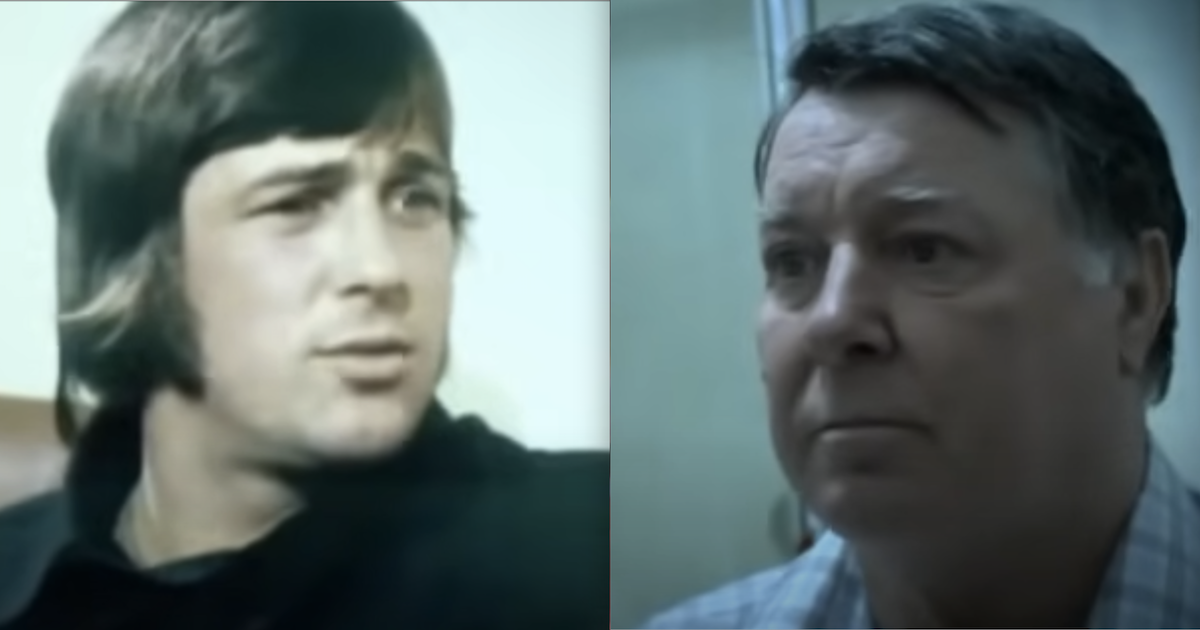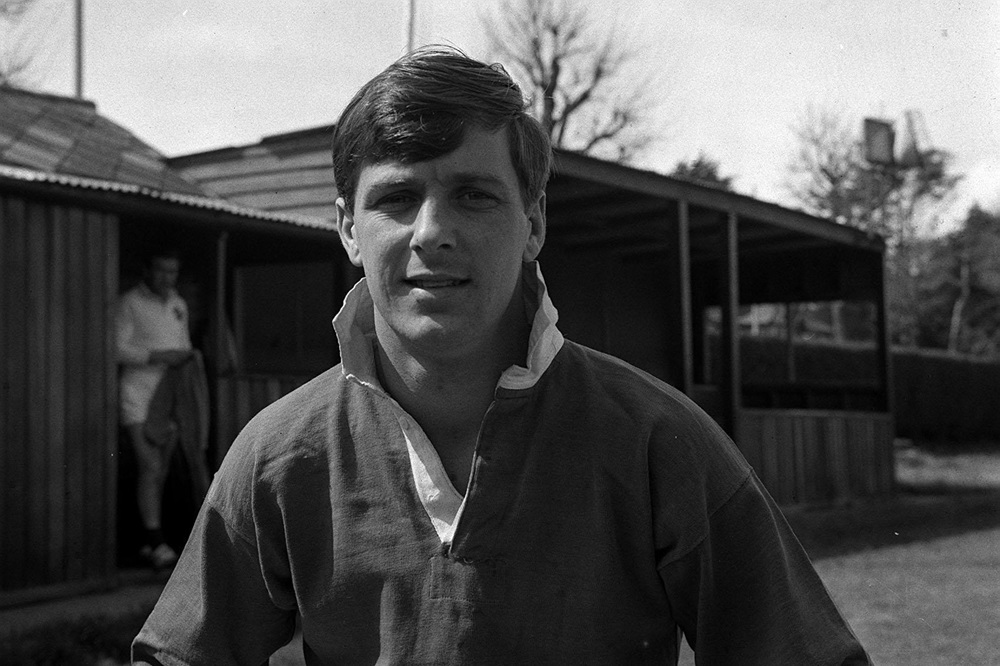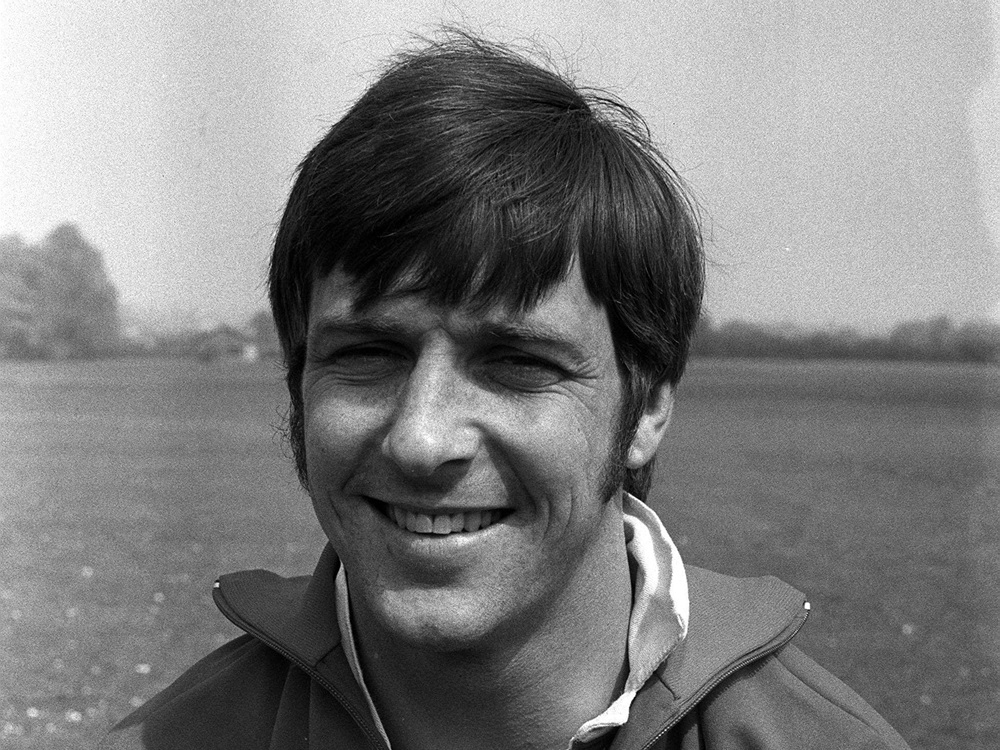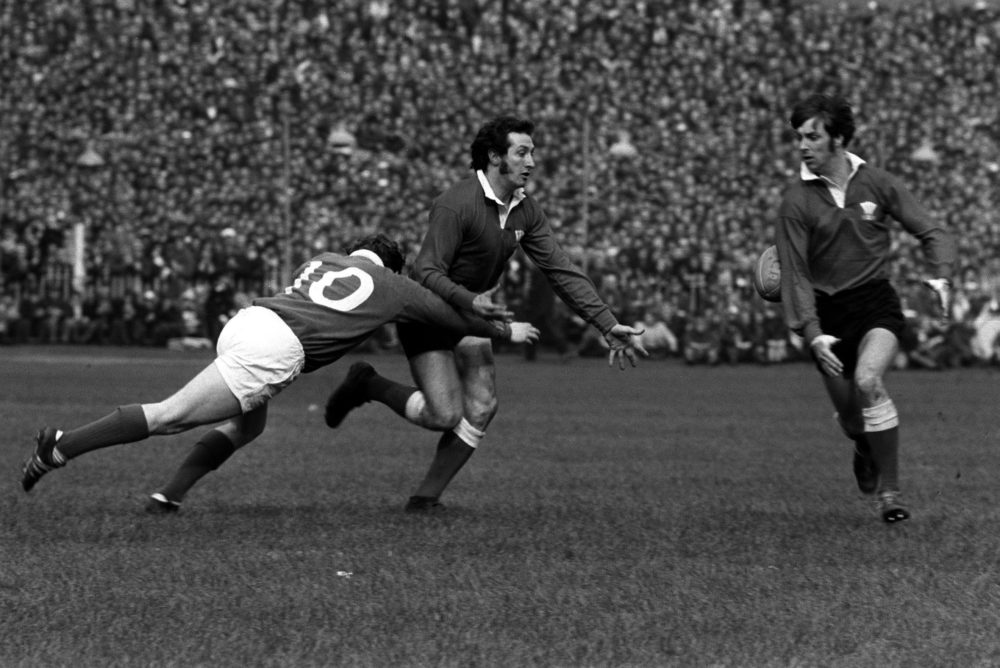Barry John — the right kind of royalty

James Stafford
Few things bring home the cruelty of the relentless march of Father Time than the death of a sporting hero.
Since Barry John died on Sunday, flickering and grainy images of his supernatural like footwork, effortless grace and bewildering balance have flooded social media like a twentieth century memento mori.
The death of those we care about, whether those we knew personally or those we only admired from afar, always elicits feelings of sorrow or despair. But the death of an athlete conjures up a distinct emotion. How, we ask, is it possible that the body they once commanded with unimaginable levels of coordination and skill has given up the ghost? How are we still standing if they are gone?

For countless rugby mad youngsters growing up during the Welsh rugby famine of the 1980s and the 1990s, John loomed large in the sporting and social worlds they lived in. His immortality was assured through VHS tapes and a Welsh culture drowning in a sentimental and stuffy nostalgia for better times. To the unfortunate players of the nineties, betrayed and hamstrung by the actions and inactions of their own gravy guzzling union, he was akin to a ghost from a Dickens’ novel that they could never hope to appease.
John’s greatness echoed through the ages, and the glory won by him and his teammates almost seemed to mock us youngsters who endured only mediocrity and despair on our own international weekends. Witnessing Wales fall to the likes of Canada in Cardiff made the video footage of Barry John taunting the All Blacks in 1971 with the Lions seem like something from a parallel universe — a strange universe in which Welsh rugby players were revered by the rugby world rather than mocked or pitied.
In the 1980s there was a video called ‘The Crowning Years’ which seemed to reside almost permanently in the video player of every second household in South Wales. Starved of success with the current Wales team, younger fans would view it scarcely believing our nation once bestrode the playing fields of the world with such swagger. It gave us a tantalisingly faint (but cruel) hope that one day ‘order’ may be restored and we would return to such halcyon days: days where victories in the Five Nations were as numerous as the sideburns and tuneful hymns bleeding out of the terraces and stands of the old Arms Park in our worn out copy of The Crowning Years. Older viewers had the better deal in all this, they watched it to reminisce over happier times they’d already experienced in the flesh the first time around.

My father would sit down to enjoy this tape with me if ever he wandered into the living room when I had it on. He never did that when I put Ghostbusters or Raiders of the Lost Ark on for the umpteenth time. I never saw it as such then, but these were moments of cross-generational bonding and, with my father also now among the faithful departed, ones I am eternally grateful for.
When sporting figures leave us, their death sends out millions of ripples across the world and stirs up billions of memories. A vision of something long gone is rekindled in our brain. In it, the departed star shines, brightly or dimly, but they are there. We can sense them in a family trip to Stradey Park in the rain, in the smell of stale beer at the Arms Park, in a chance meeting in a bar, or in an autograph gained for the collection. We all imbue these moments with our own personal meaning, flavouring them with whatever significance or narrative that suits us. The fact we often share these treasured memories with friends and families, often passed on from this mortal coil too, only makes them all the more poignant.

I never saw John play, but I still tried to be like him in my back garden with my Mitre multiplex ball that had the same amount of grip as a bar of wet soap. Like almost everyone, I fell well short of John’s deeds. But, God, I loved trying.
I was lucky enough to meet John a handful of times as a boy and young man. On one occasion he gave me some advice that I will always treasure. ‘Always be interesting,’ he said between sips of beer, a substance I knew, even at my young age, had some kind of hold on him. It showed me, ultimately, he was mortal like the rest of us.
John said it didn’t matter what it was, but he believed you should always strive to learn new things, experience new sensations, meet new people. Be interesting. I’ve heard far worse advice in my life.
One of the most moving aspects of the outpouring of condolences for John was seeing the impact he had on supporters and players outside of Wales. Grief was expected in his homeland, but it still somehow comes as a shock when it hails from Surrey or Sydney. In Wales we are always a little surprised and humbled when one of our own is celebrated in distant lands.
Of hundreds of comments I obsessively and numbly scrolled through after the news broke, it was this one in The Guardian that hit my hardest:
“As an English kid growing up my bedroom wall was plastered with cut out pictures from the NME of literal rock stars: Page, Richards, etc. But in the centre of this collage there was a picture of my greatest idol. Barry John.”
Real kings and queens these days do nothing to earn their title. They acquire it through an accident of birth. Their title is the result of leaving a certain womb several generations after some distant relative poisoned, murdered or fought their way to the throne. It is not something we should ever feel the need to humble ourselves over.
Yet, as a society, we do. After guiding the British Lions to their first (and to this day only) Test series victory in New Zealand, Barry John came third in the 1971 BBC Sports Personality of the Year award to a member of the British Royal Family who had won a European equestrian event. He was seen, no doubt, as the wrong kind of royalty.

Yet Barry John earned his name through his own deeds. Through the things he did with his own hands, feet and mind.
The King of rugby is dead and there is no designated heir for us to cheer ‘Long live the King’ for in his place. That title was his alone.
Barry John was the right kind of royalty. The self made kind. The type we should celebrate as a society.
The memories he gave millions of us — either first hand or through the pages and videos of history — are worth more than any earthly crown or broadcasting award.
Let us long remember the King.
James Stafford is the editor of The East Terrace
He is also the author of a number of rugby books including An Illustrated History of Welsh Rugby: Fun, Facts and Stories from 140 Years of International Rugby. View all his books HERE
Support our Nation today
For the price of a cup of coffee a month you can help us create an independent, not-for-profit, national news service for the people of Wales, by the people of Wales.






Long will live this King in our memories. Excellent tribute!